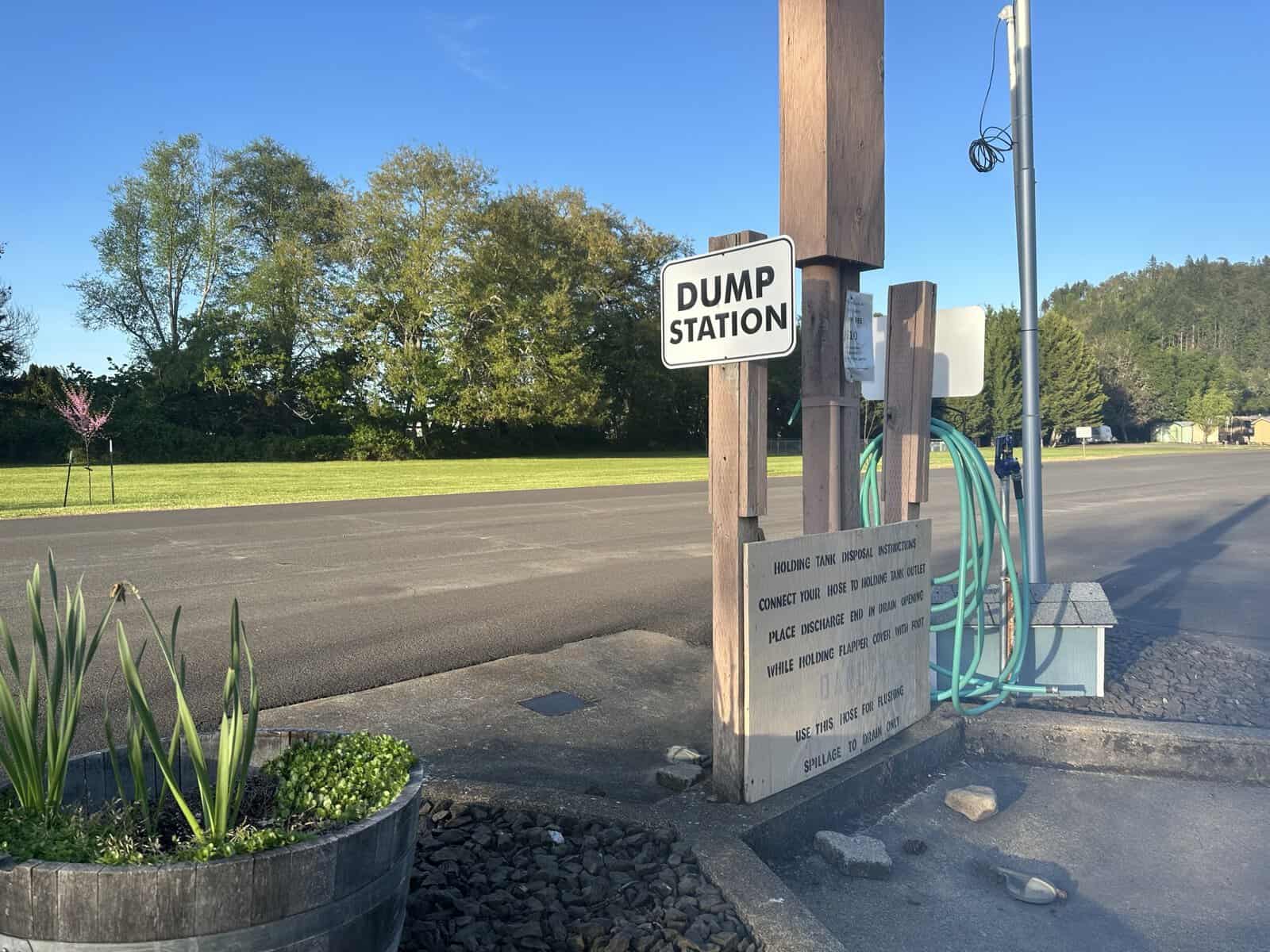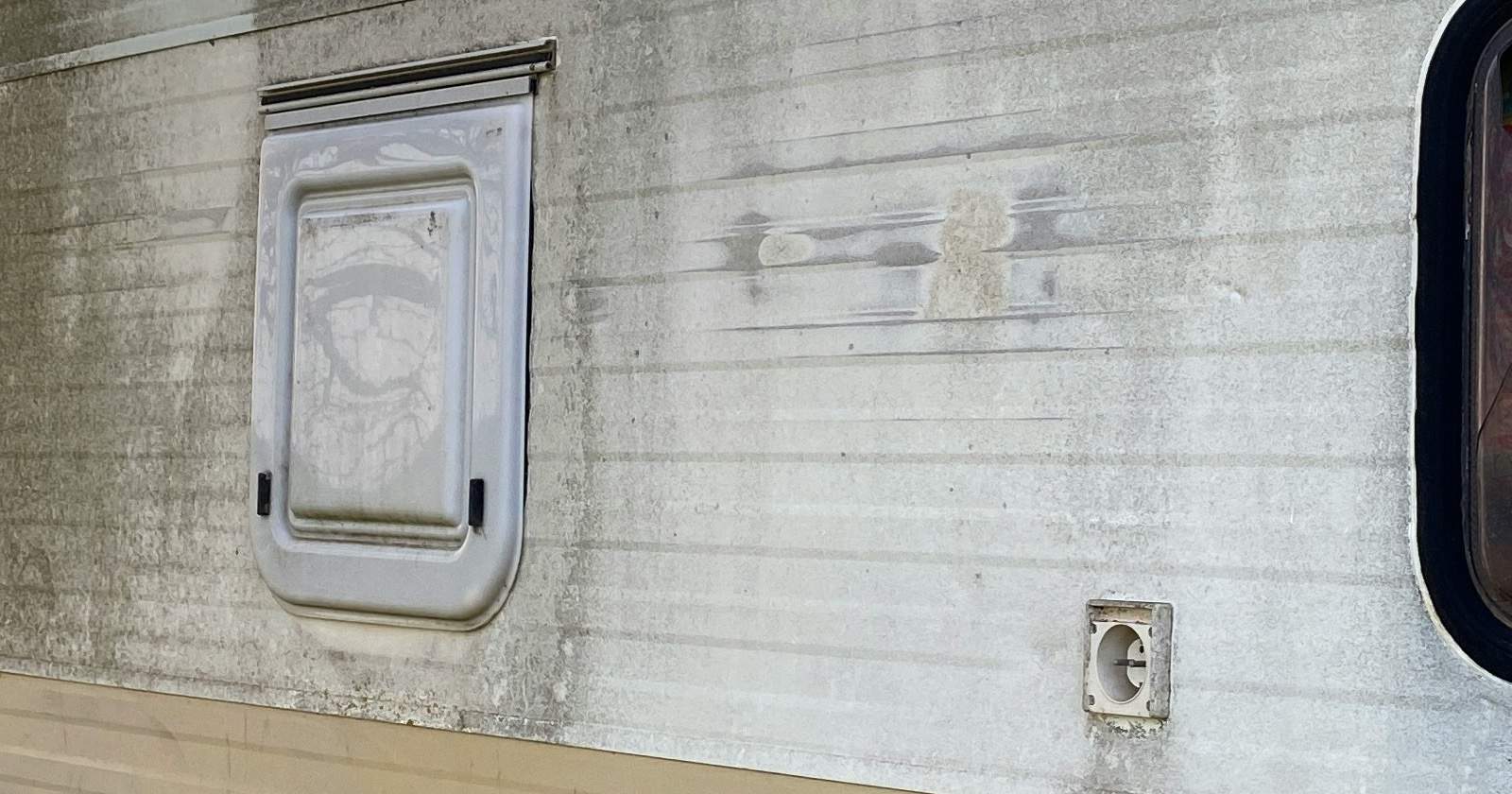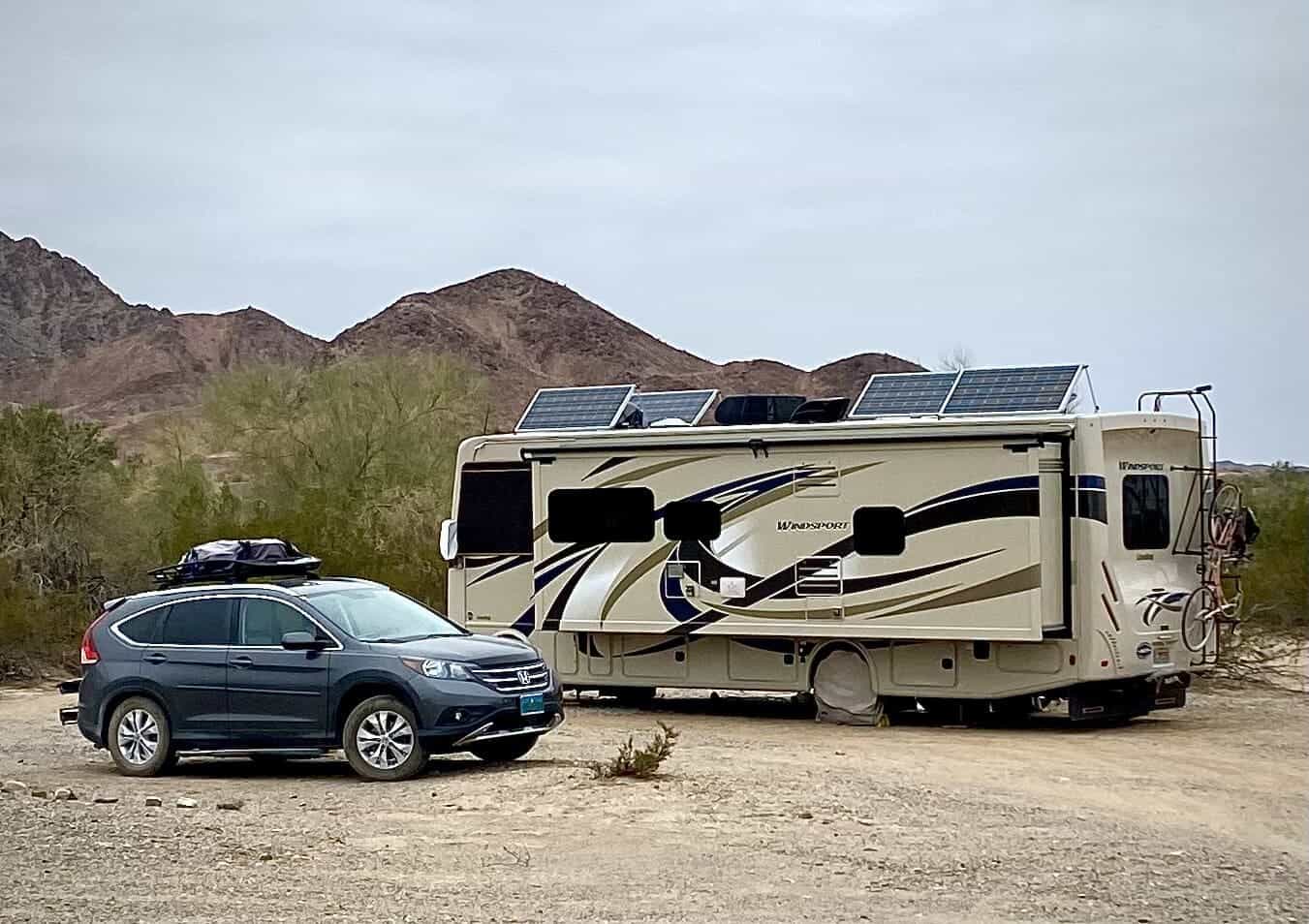Are you one of the thousands of people dreaming of trading your sticks-and-bricks home for a full-time RV adventure? If so, these five tips will help make that transition a little easier.
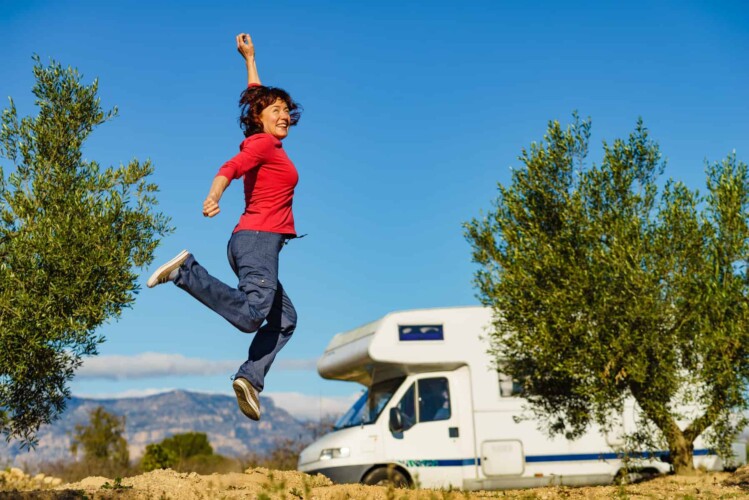
1. Take your time
All major life changes can be stressful. Selling your home, changing all of your routines, leaving family, friends, and all your familiar activities for a life on the road is incredibly high on the life-stress scale, so you need to take your time as you prepare for this new lifestyle.
There are thousands of details and logistical concerns that need to be managed before you walk out the door for the last time. You will need to decide where you want to call home. In other words, where will your “domicile” be?
Everyone needs a home address.
It could be in the state in which you currently reside, or it could be in a state with lower tax liabilities like Florida or South Dakota. Where you domicile is where your mail will be delivered.
You’ll need to make arrangements for your mail to be received and forwarded. You will also need to apply for a driver’s license, vehicle registration, and register to vote, in your domicile state. So even if the taxes are less in some other state, it might just be easier to maintain a domicile in the state in which you currently reside, especially if your plans are to circle back around to that state occasionally to visit family and friends.
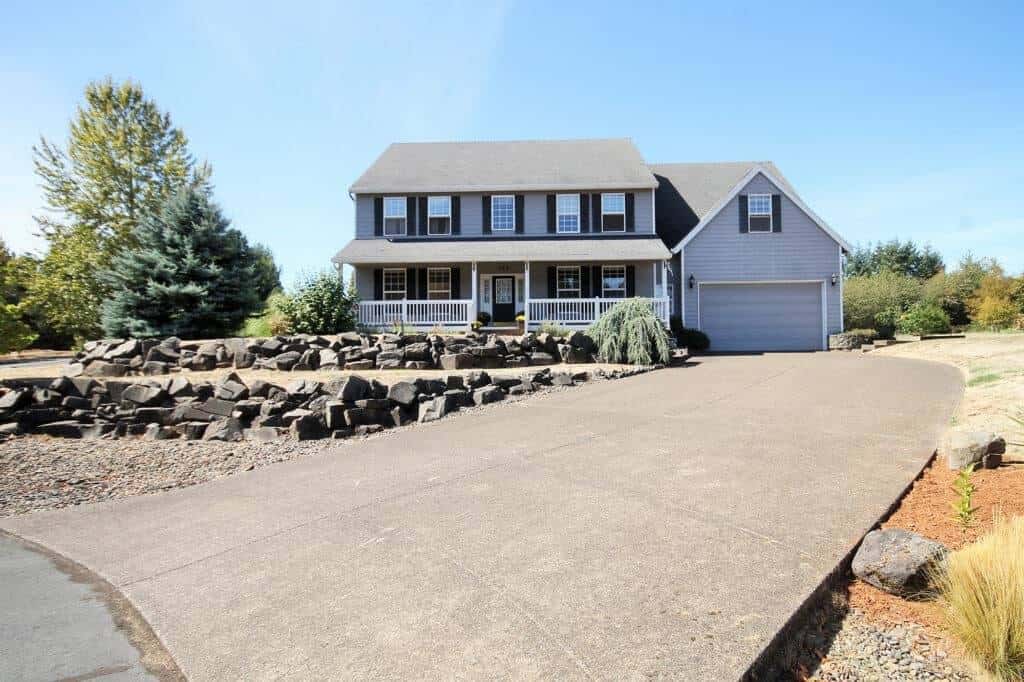
Selling your home and moving into an RV is huge transition and takes careful planning. (Image: Peggy Dent)
Another part of the process is the disposition of all of your personal belongings. You’ll need to decide if you want to keep, sell, or donate all or some of this property.
If you decide to keep the bulk of it, then you’ll need to arrange for a place to store it. The bottom line is you will need to sort through everything that you own, and this is a stressful, time-consuming, and often emotional process. Sorting and disposing of your personal belongings involves thousands of decisions. If you try to rush through this process, you will inevitably discard property you’ll eventually wish you had kept, and you’ll keep some belongings that you later realize have no real meaning or value.
Should Your Stuff Stay or Should It Go?
Before going full-time, I was a bit of a tool hoarder, but when we sold the house and virtually everything in it, I sold all but one small box of tools that I packed into the RV. I had four Dremel tools, and I sold them all.
Why? Why didn’t I keep at least one good Dremel tool?
I put a lot of other stuff in storage that I will absolutely never need again, but for some reason I didn’t keep even one of these useful tools. Now I need to go buy another Dremel tool because there are times when I need this handy little gadget in my motorhome.
We also disposed of several items that we were emotionally attached to, and we regret not putting those items in storage. If you’re going to sell your home to go full-time in an RV, you will go through this process. I implore you to take your time, go slow, and think about every decision carefully so you don’t have regrets.
2. Start with the right equipment
Another place where new full-time RVers run into problems is they don’t spend enough time investigating exactly what type of equipment will meet their needs. We’ve met other full-time RVers who thought the best equipment for their adventure was a small van conversion, only to discover that the van was too small and too limited to support their full-time lifestyle.
Another full-timer was traveling in a large fifth wheel and had only been on the road for a couple of months before they determined that the hassle of towing and setting-up their fifth wheel was too encumbered and nerve-wracking for their long-term enjoyment.
To really enjoy your full-time RV experience, you’ll need to have the right type of recreational vehicle that fits your lifestyle and your family. If it’s too large, you may not be able to take it to all the places you want to go. If it’s too small, it may not accommodate your lifestyle.
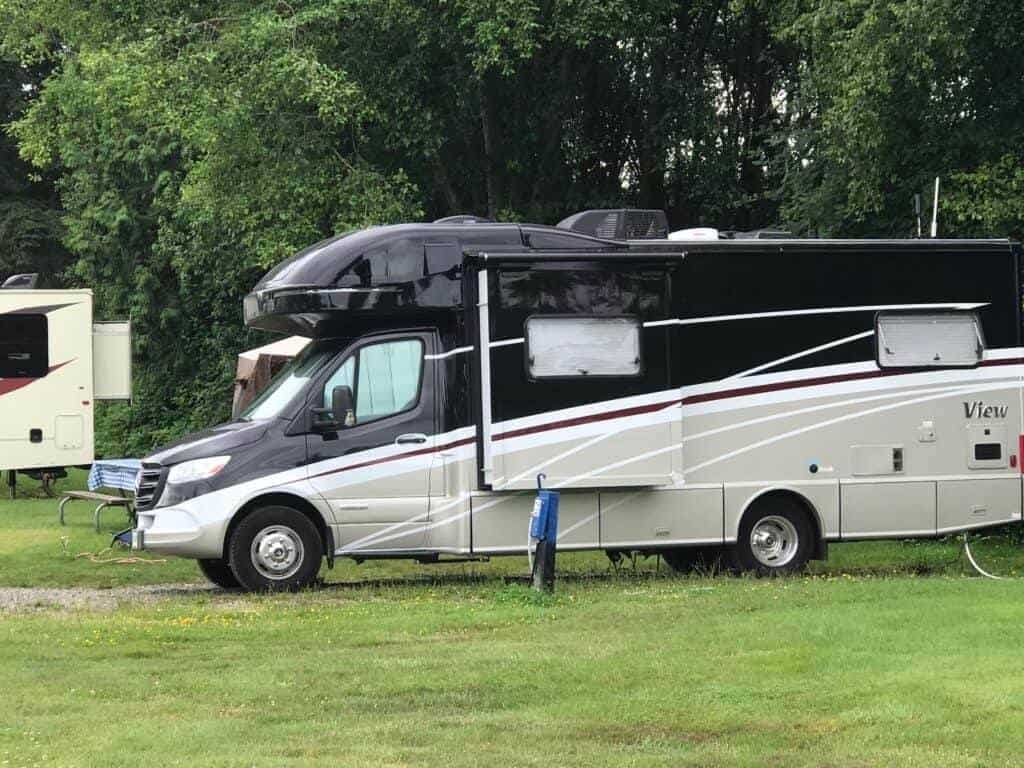
Try renting an RV before you buy one. You’ll quickly learn what size and type fits your needs. (Image: Peggy Dent)
3. Try it before you buy it
Another important step in preparing for a full-time RV adventure is to try it before you buy it. We have met full-timers who had never camped in an RV prior to selling their home and going full-time. They fell in love with the IDEA of a full-time RV adventure, but they had never actually experienced camping in an RV.
This lifestyle is not just one vacation mashed into another vacation, and so on. Like any other lifestyle choice, there are challenges and difficulties that come with the choice. You need to be hyper aware of the weather and mindful of potential weather threats.
Many people think living full-time in an RV will save them a huge amount of money, but our experience is that it is not nearly as economical as you might think, and unlike a house that appreciates in value, an RV depreciates in value like a car, so you’re not adding to your net worth by living full-time in an RV.
If you have never camped in an RV, and you are considering becoming a full-time RVer, I suggest that you rent different types of RVs and spend several weeks traveling and camping to determine if you feel comfortable in that setting.
Full-time RVing isn’t just for a week or two. It’s 365 days a year.
Half the fun of this lifestyle is being on the move and discovering new places and people, but the nomadic lifestyle can also wear you out. Where will you spend your winters? Can you afford camping fees? Do you feel safe boondocking? Will you need to work to support this lifestyle? What type of rig will meet your specific needs?
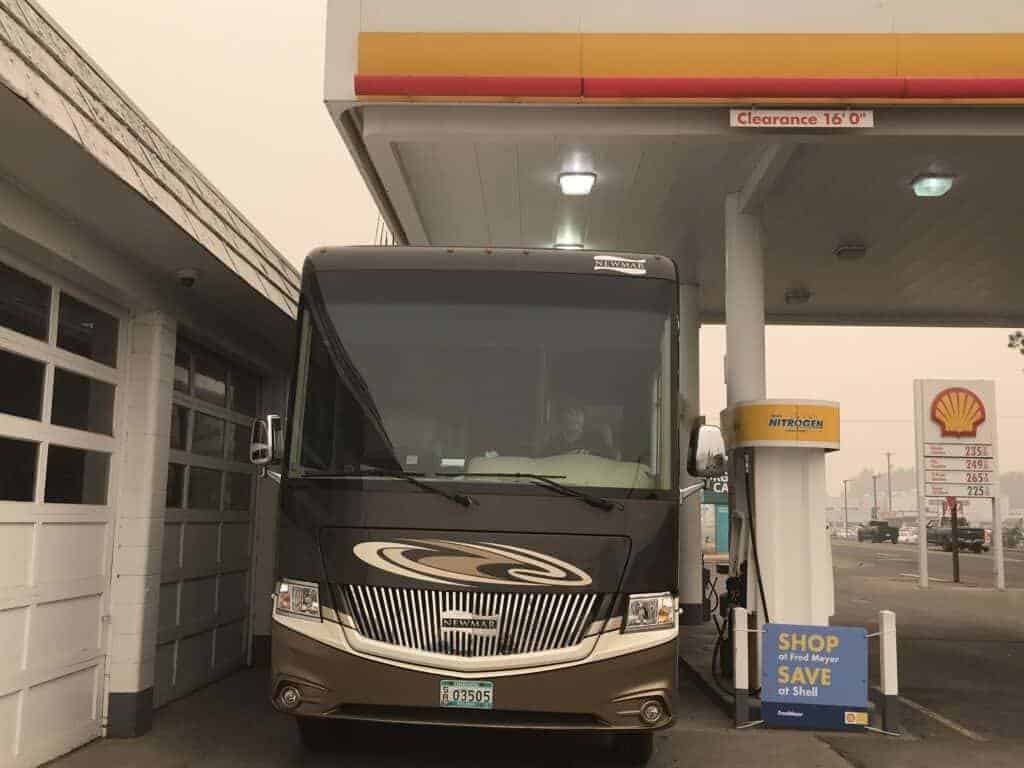
4. Have realistic expectations
As stated earlier, the full-time RV adventure is not just one long vacation. It’s a new lifestyle and there are both negative and positive aspects of this nomadic choice.
Many people feel that one of the biggest drawbacks of a life on the road is the superficial nature of most of their human interactions. You meet many new people on the road, but you never get to know any of them very well, and all the conversations with new people tend to be repetitive. It’s like going on a thousand first dates and never getting to a second or third date.
It’s going to be a huge disappointment if you think the entire full-time adventure is just one continuous outdoor barbecue with beers around the fire every night like you enjoy when you go RVing with friends on the weekend.

Every day of your full time RV adventure won’t always end in a glorious sunset. Have realistic expectations. (Image: Peggy Dent)
Real life happens, too
We had camped in an RV on weekends and holidays for almost twenty years before deciding to go full-time, so we knew what RVing was like, but we did not know what it would feel like to do it every single day. Since going full-time, we have traveled across the country and back, and we’ve seen and experienced amazing places, but there are still long periods between these adventures when we need to get some work done and when we’re dodging dangerous weather.
And now, we’re trying to balance the need to stay out of all the pandemic hot spots, against our need to find shelter from dangerous winter weather. If you’re planning to make the transition to full-time RVing, try to establish realistic expectations.
5. Develop an exit strategy
When you’re developing your plan to become a full-time RVer, you should also think about the other end of that transition and decide what type of exit strategy might make the most sense for you and your family.
The right exit strategy may depend on your age, your health, your full-time objectives, the age of your RV, your financial situation, and a number of other variables, but it seems reasonable that at some point in the future you will want to stop being an RVer and do something else.
Perhaps your exit strategy will be to trade your RV in for a boat big enough to live in, and you will trade the open road for the wide-open seas. Maybe when you stop being an RVer, you’d like to settle down in an apartment or house close to your kids, or maybe you want to become an expat living in another country. Everyone is different, but having a few ideas about your future, after your RV life, will help you prepare for that future while you’re still enjoying all the excitement of your full time RV adventure.
Bonus Tip for Future Full-time RVers
One final piece of advice that will make your full time adventure less stressful and a lot more fun: Subscribe to all the tools offered by RV LIFE, from RV LIFE Campgrounds to RV LIFE Trip Wizard and their RV Safe GPS. These tools have been created specifically for the RV community and as full-timers you’ll quickly discover just how vital they are for helping you plan and navigate through your adventure.

